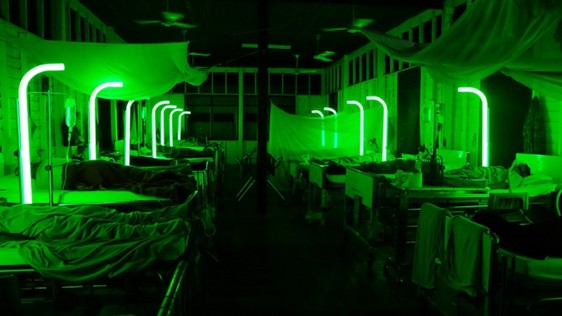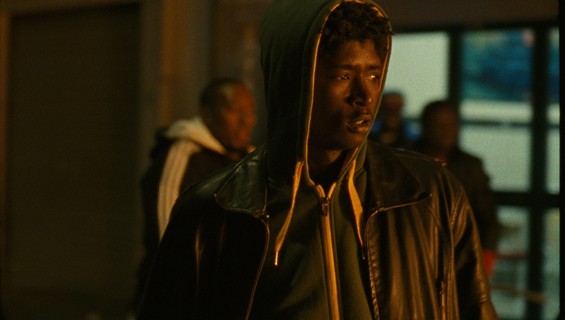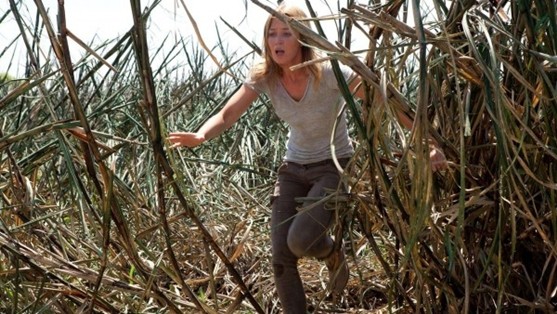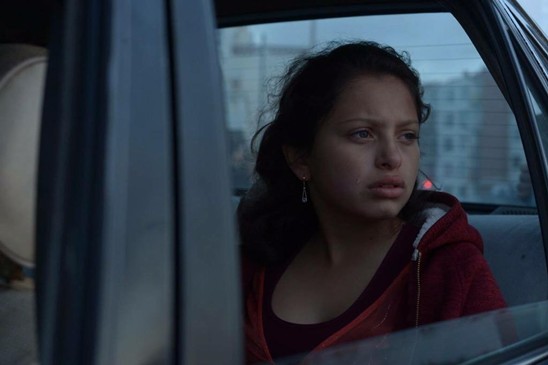
Day 1 – Monday 19th May
Returning to Cannes for my second festival, I was fairly confident of negotiating the busy schedule far better than I had the previous year. With the new ticketing system allowing festival-goers to request tickets well in advance, I hoped to see several competition films from some of my favourite directors working today (Audiard, Sorrentino and Villeneuve to name a few).
It surprised me how familiar everything felt this time around, and make no mistake about it, Cannes Film Festival is a strange (but wonderful) experience. It’s hard to imagine many places where lowly film programmers such as I can rub shoulders with A-list celebrities in the street or accidentally walk amongst supermodels on the Croisette as they perform a live fashion show.
Of course it’s also possible to watch the year’s best films from across the globe, and after a slightly delayed flight, I arrived in Cannes too late to queue for Todd Haynes’ Carol, which has so far received rave reviews, but took a chance at the back of the long queue for Apichatpong Weerasethakul’s latest film Cemetery of Splendour, which was screening as part of Un Certain Regard. I managed to get in and find a seat at the back of the Debussy, and spend two hours engrossed in a wonderfully unique film.Whilst not quite on a par with the excellent Palme D’or winning Uncle Boonmee…, this is nevertheless another beautifully composed and thoroughly engaging work, that should delight fans of Apichatpong and poetic cinema alike.
Following the screening I just had time to return to the apartment, shower and change for the ICO dinner, which was a great opportunity to chat with distributors and partners from across the industry. It also provided an opportunity for some pretty spectacular pate, a food highlight of my trip this year!

Day 2 – Tuesday 20th May
Jonas Carpignano’s Mediterranea was playing in the Critics Week strand, and the director was there in person to explain how he adapted his short film A Ciambra (which played Critic’s Week last year), to create this complex and topical film. It follows an African migrant from Burkina Faso, Ayiva, as he crosses the Mediterranean sea to try and eke out a living in Italy. An intimate and at times harrowing film, it portrays the harsh realities of Ayiva’s struggles, and does a fine job of telling this very human story, all set within the context of a truly global issue. The topical nature of the film should result in strong press, and it will be interesting to see if that will help the film receive worthy distribution in the UK.

A few eyebrows may have been raised at the inclusion of Denis Villeneuve’s latest film, Sicario, in the main competition strand. On paper the film is a decidedly more mainstream affair than some of its competitors, with a starry cast including Emily Blunt, Josh Brolin and Benicio del Toro. However, Sicario stands up to many of its competitors; a bleak but striking thriller, its confidence, visual flare and constant sense of dread are reminiscent of early David Fincher and Michael Mann. The film looks stunning, thanks in no small part to Roger Deakins’ superb cinematography, and features a brilliant brooding score from Icelandic composer Johann Johannsson. Lionsgate are releasing the film in late September, the same week as Villeneuve’s last film Prisoners, and will be hoping for similar box office success off the back of strong reviews.

My final film of the day was The Chosen Ones (Las Elegidas) from Mexican director David Pablos, a tough, uncompromising look at modern day slavery and prostitution in Tijuana. Pablos chooses to focus on the moral plight of a conflicted young man, Ulises, forced to work for his father and brother to enslave young girls to work in the family’s brothel against their will. The Chosen Ones has echoes of Miss Bala and Miss Violence, but the decision to examine issues via Ulises own story of potential redemption is a brave one, as it forces viewers to look at this horrific reality from a different angle. The film is no less powerful for this, and Pablos constructs some fantastic scenes (the split screen montage with off-screen audio is uncomfortable but compelling viewing) that mark him as a director to watch out for in the coming years.

